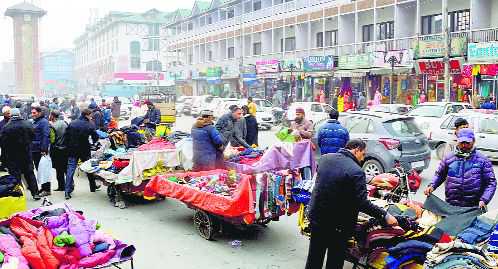
Governance first: All that the common man in the Valley wants is ease of everyday life, irrespective of which party or coalition of parties delivers it.
Shyam Saran
Former foreign secretary and senior fellow, centre for policy research
The Governor of J&K, Satya Pal Malik, took a sudden decision on November 21 to dissolve the state Assembly, which had remained in suspension since the fall of the PDP-BJP coalition government in June. He had the authority to do so but what is troubling is the justification he has provided for his action. He has adduced four reasons for his decision.
One, he pointed to ‘the impossibility of forming a stable government by the coming together of political parties with opposing political ideologies’. He elaborated that ‘with a fractured mandate that there is in the Assembly, it is not possible to form a stable government comprising of like-minded parties’. He has alleged that the ‘coming together of the parties… is nothing more but an attempt to gain power rather than to form a responsive government’.
In a democracy, the mandate to govern is not qualified by any requirement for parties who decide to form a coalition, to be ‘like-minded’. No discretion has been given to any constitutional authority to decide whether or not parties who have decided to partner with one another, are ideologically compatible. Was the erstwhile BJP-PDP ruling coalition in the state made up of ideologically compatible parties? Similarly, there must be some basis on which the Governor may determine whether a prospective government will be stable. In a democracy, it is the numerical strength of a political formation in an elected Assembly which determines whether it enjoys the confidence of the House, not whether the Governor believes it will be stable. The charge that this was an attempt by the parties concerned ‘to gain power’ sounds odd, because all parties are driven by ambition to gain power and if they do not run a ‘responsive government’ having gained power, the people can vote them out. It is not for the Governor to decide on this a priori.
Two, the Governor charged that there were reports of ‘extensive horse trading and possible exchange of money’. Horse trading is a reality, otherwise how would coalitions ever be formed? On ‘possible exchange of money’, you cannot reject parties on the basis of uncorroborated reports. No such discretion resides in the hands of the Governor.
Three, the Governor has expressed his doubts about the ‘longevity’ of the political arrangement proposed by rival groups. The longevity or otherwise of the governing coalition should be determined by the elected members of the Assembly. No such authority has been given to the Governor. As he has stated, there were ‘competing claims of majority’ but this could have been tested on the floor of the House.
Four, the Governor cited the ‘fragile security scenario’ in the State to justify the need to have ‘a stable and supportive environment for security forces which are engaged in extensive anti-militancy operations and are gaining control over the security situation.’This is self-contradictory argument. If the security situation is improving and the state government has been confident enough to go ahead with local elections, why should a government made up of elected representatives be regarded as a risk factor? If elected governments by their very nature are regarded as heightening security risks, should elections to the Assembly be held at all? Is this not an argument for perpetuating President’s rule?
Finally, in the context of the proposed Assembly polls, the Governor expects that they will ensure that a ‘government with a clear mandate is duly formed’. How does he know that this will indeed be the outcome? In a democracy the electoral outcome cannot be pre-determined. It cannot be made to conform to our expectations, however preferred they may be.
The parties involved in this unfortunate saga may have their own agenda and there have been enough commentaries on that. Here one is concerned with the serious implications of the justification adduced by the Governor for his decision. If allowed to go unchallenged these could become precedents which could endanger the fabric of India’s democracy. What has happened in J&K could happen in other states. Supposing the ongoing elections in several states produce ‘fractured mandates’, as they well might, would this be cause enough to prevent the formation of coalition governments if in the judgement of the Governor concerned the parties involved are not ‘like-minded’? Is it the judgment of the Governor or the decisions of elected representatives which will determine whether the proposed government is stable? There is no constitutional requirement for ‘stability’, except in an emergency and for imposing it, there are laid down constitutional provisions. Could not the arguments of like-mindedness and stability be extended to the national level to repudiate electoral outcomes? All parties need to be concerned about these implications because those in power today may have to sit in Opposition tomorrow. The citizens of India need to be mindful of the threatened erosion of their right to be governed by those whom they elect.
One should be wary of the security argument being used as a veto over democratic institutions and processes. Or to argue that security is compatible with only certain types of electoral outcomes or only some kinds of political arrangements. This is the very anti-thesis of the democracy enshrined in the Constitution. Nor should we countenance the abandon with which political rivals are labelled as ‘terrorist friendly’ or acting at the behest of a foreign country. Competition among parties is the essence of democracy but such competition must remain within the bounds of decency and acknowledge that when it comes to upholding national interests, all parties who submit themselves to the judgment of the people in free and fair elections are ‘like-minded’.



























